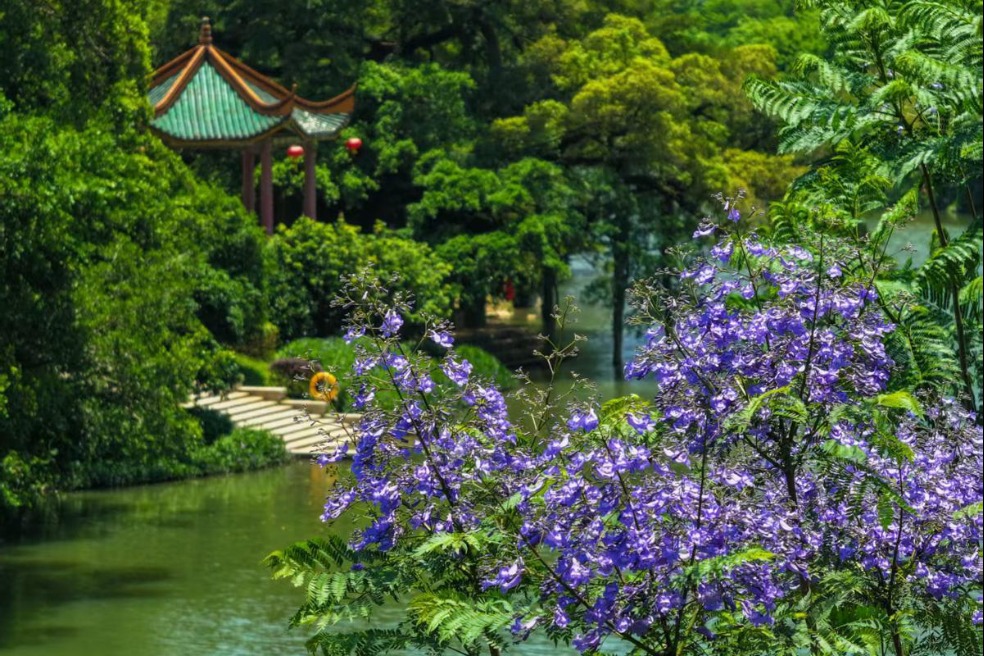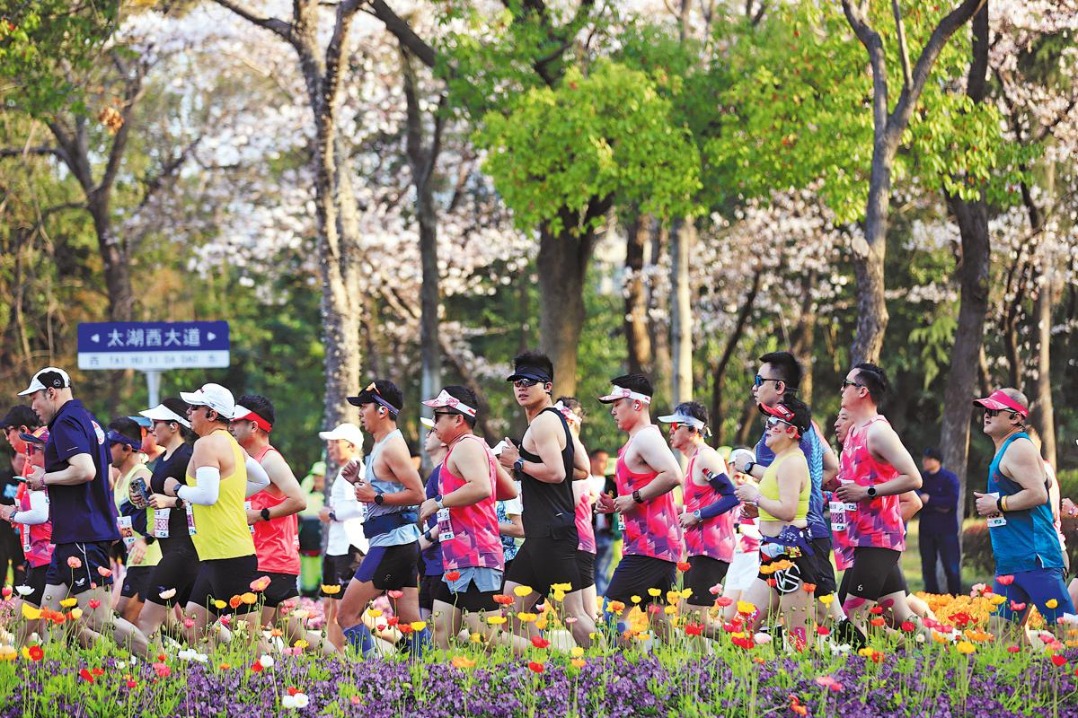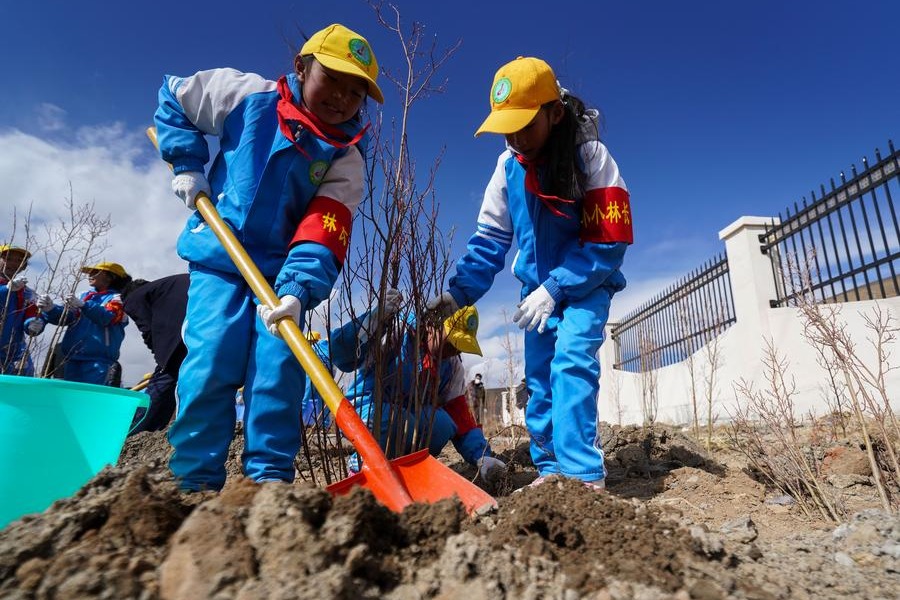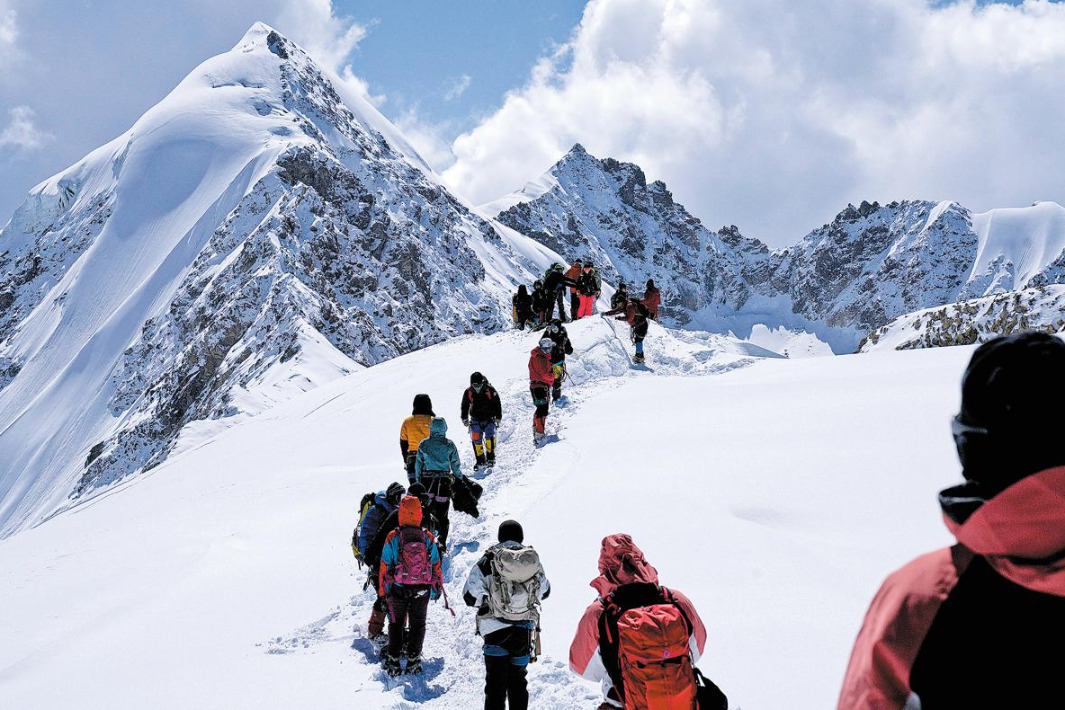Educator passes on natural passion to the public

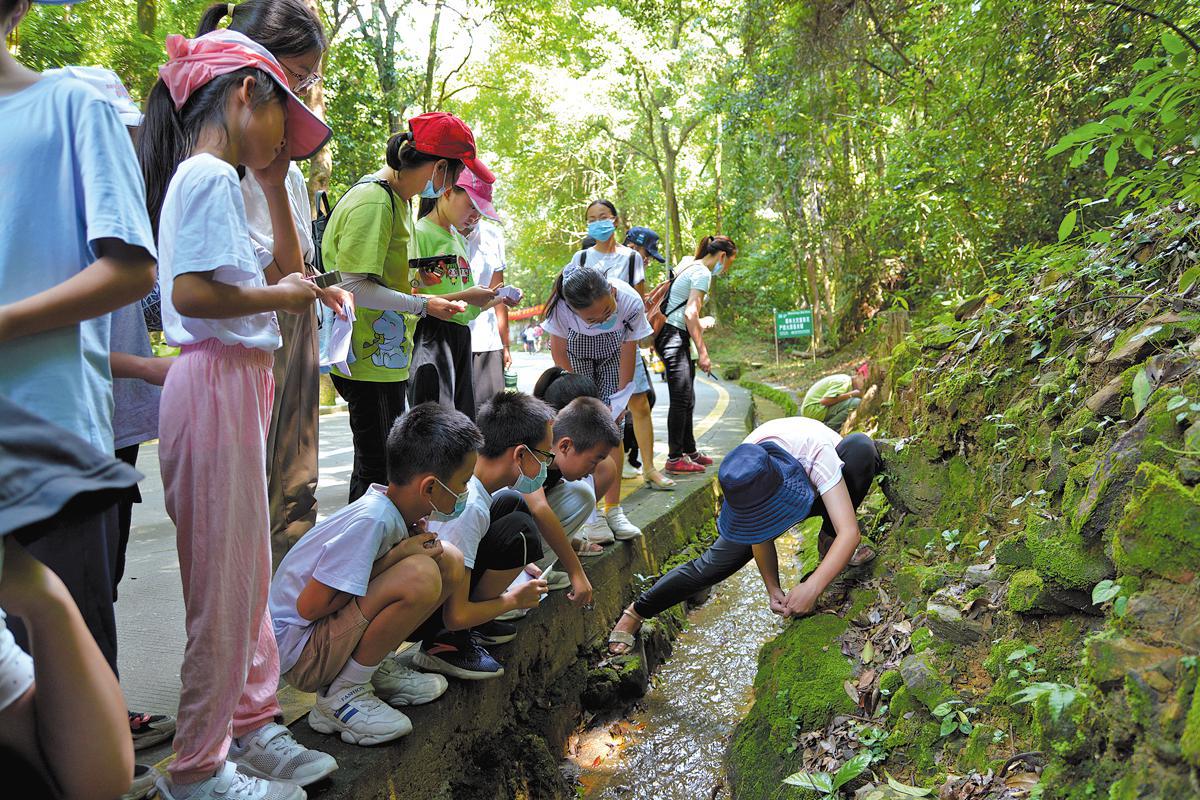
For the past decade, Dinghu Mountain National Nature Reserve has played a significant role in China's nature education and popular science, serving nearly 20,000 students and eco-researchers annually.
Researchers at Dinghu Mountain have developed a unique approach to nature education, a result of 12 years of exploration and dedication by cross-disciplinary nature educator Peng Lifang.
In 2013, Peng graduated from Wuhan University and moved to Shenzhen, Guangdong province, for work, spending long hours in a small cell culture room. However, a trip to Dinghu Mountain changed her life trajectory.
"The mountains, water and trees here are beautiful. I felt relaxed, free and healed. I thought to myself, how wonderful it would be to work around here," Peng said.
After returning to Shenzhen, Peng prepared her resume and approached the head of the management bureau. "He was surprised because most young people prefer the big city life over moving to the mountains," she recalled.
"A nature education position had just become available. I didn't know what nature education was, but it sounded great to work closely with nature," said Peng, who is now head of the science and education department at the reserve's administration bureau.
"From the start, I researched, conducted field studies and talked to others to learn what they were doing, then tried to replicate that," she said.
Over the years, Peng and her team organized fun activities like bird-watching, forest exploration and night tours of the mountain.
However, in 2018, a school's birdwatching event at Dinghu Mountain led Peng to a significant realization.
"A teacher asked, 'What makes your nature education activities different from others?' I was at a loss for words," she said.
This question deeply impacted her. "I realized Dinghu Mountain is unique because it's affiliated with the Chinese Academy of Sciences, with scientists conducting research here daily. I planned to use nature education to introduce children and the public to these scientific studies," she said.
In 2011, the CAS launched a carbon project at Dinghu Mountain, using a mathematical model to calculate a tree's carbon storage by measuring its diameter. This inspired Peng and her team.
"I adapted this carbon project into a nature education activity where kids measure tree diameters to estimate their carbon storage," said Peng.
She recalled a girl finding out her family needed to plant 55 trees with 20-centimeter diameters to achieve carbon neutrality. "Shocked, she stopped asking her mom to drive her to school," Peng said, highlighting the real-world impact of research conducted at Dinghu Mountain.
Peng's vision extended beyond just introducing children to scientific discoveries — she wanted them to participate in ongoing research.
"Scientists conduct phenological monitoring here, so I wondered if we could teach the public to collect basic scientific data," she said.
Peng and her team then created a 4.5-kilometer "Little Scientist Growth Path" and a 1.2-km "Natural Forest Exploration Path", with accompanying student handbooks.
"Our path has 12 themes such as plant phenology, death and rebirth, and natural museums. We guide children and the public to upload photos, measurements and observations through QR codes, providing foundational scientific data for researchers," Peng explained.
"I tell participants they're part of an important scientific project, making them feel like little scientists," she said.
"Over time, the accumulated photos and information help us and researchers understand the vegetation and phenological conditions of the area more comprehensively," Peng added.
In 2021, Peng founded the Dinghu Mountain Volunteer Team, attracting nature lovers and environmentalists. The 100-member team includes some exceptional citizen scientists.
"Initially, we learned from others. After years of exploration and innovation, we've gained our own insights and experiences. In March 2023, we published China's first series on nature education for national nature reserves, providing methods and experiences for other educators," she said.
"Nature education has given me a sense of belonging and pride and rekindled my interest and passion for science. I want to excel in this job and pass on this enthusiasm, helping more people fall in love with nature and science," Peng said.

















